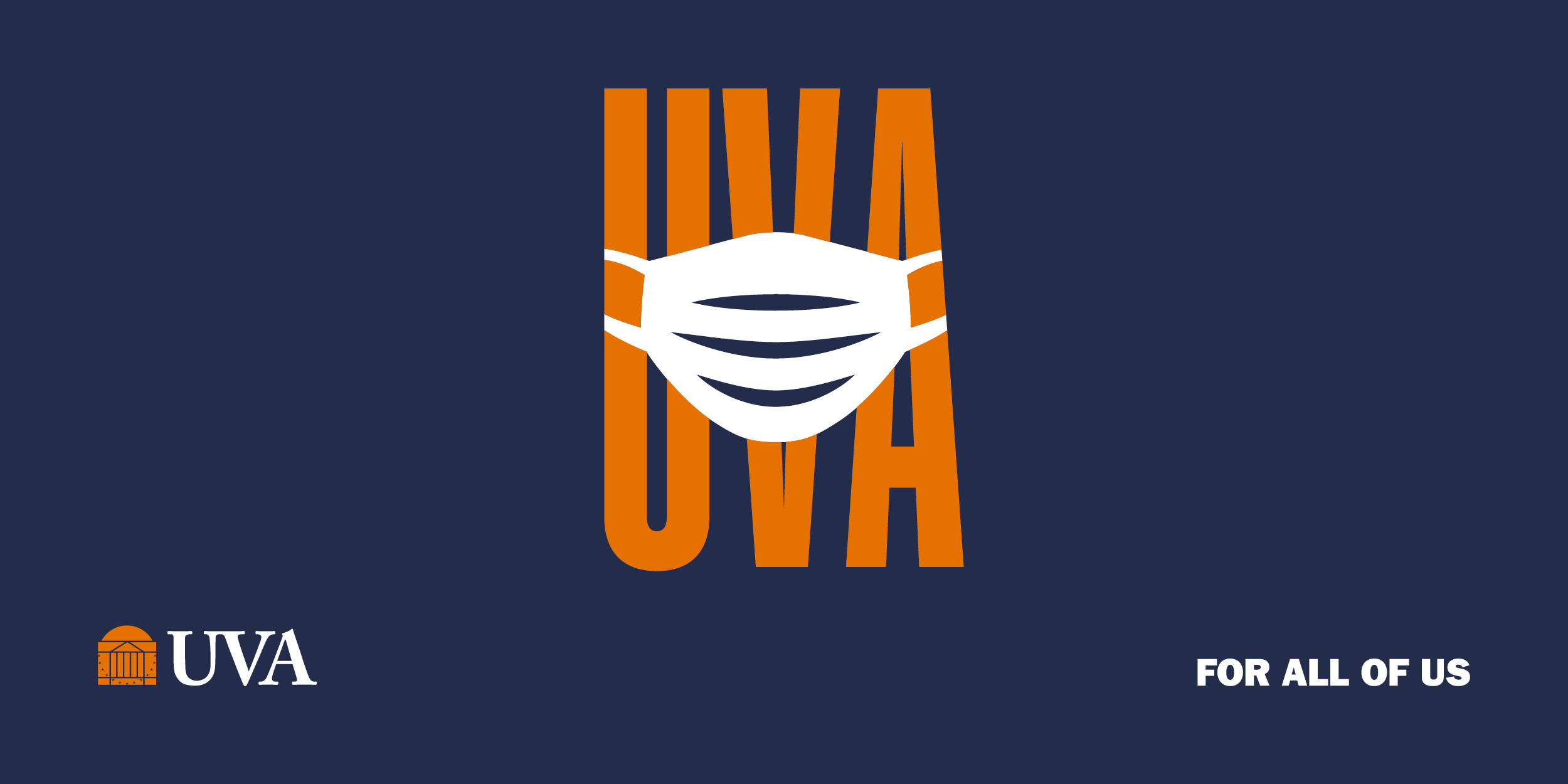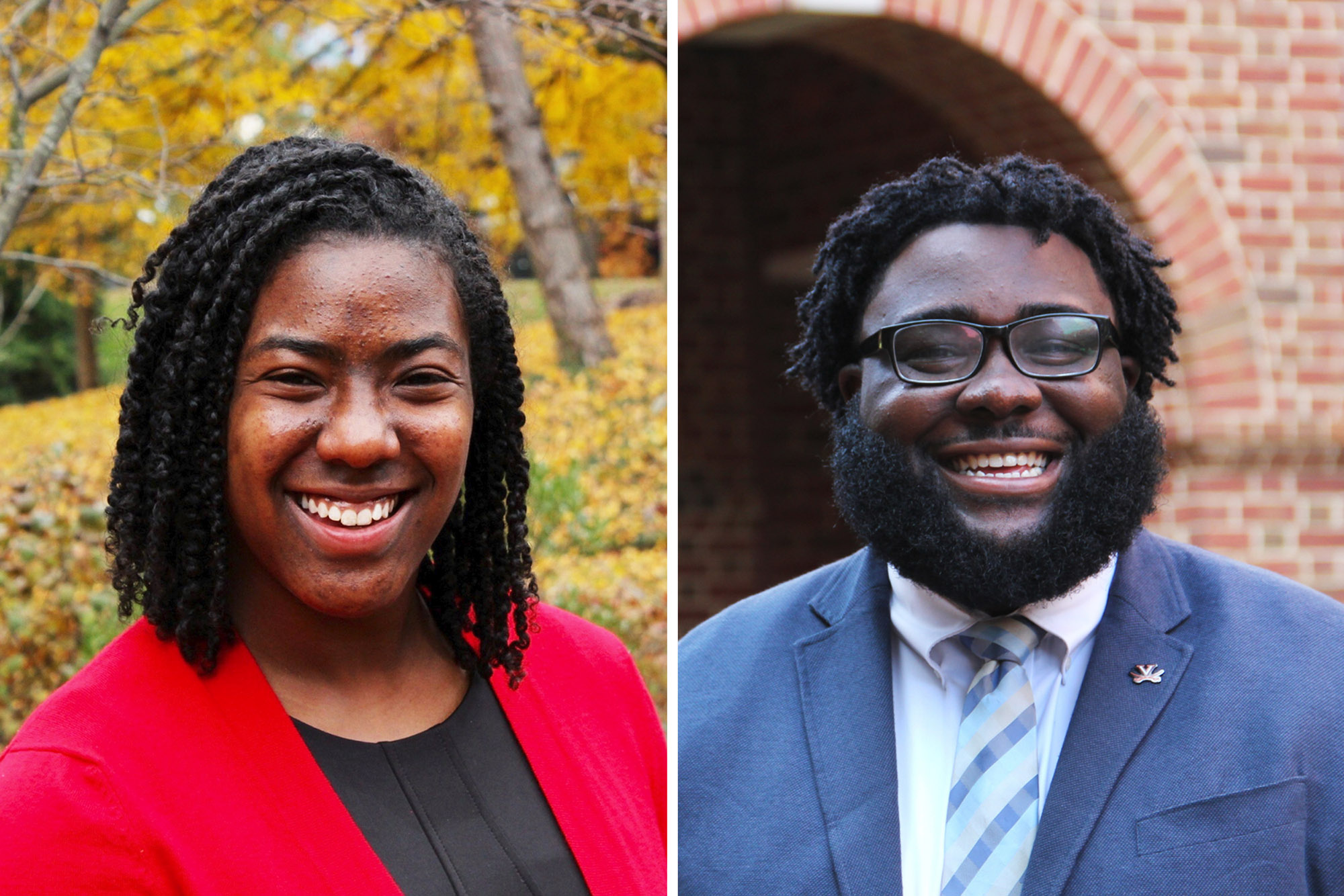Earning a doctorate takes immense determination, energy, time – and a tremendous amount of writing. For minoritized students, there are often additional unique challenges to navigate during their studies.
A year and a half ago, Miray Seward and Edward Scott, two Ph.D. students in the University of Virginia’s School of Education and Human Development, connected around a vision for creating a unique space for Black doctoral students, specifically aiming to increase community and creating a consistent, dedicated time to write.
“We were both intentionally setting out to find ways to bring Black doctoral students and postdocs together, but didn’t know we had the same vision until we had a conversation late in the 2019 spring semester,” Scott said.
Their collaboration led to the creation of the Black Scholars in Education and Human Development Writing Group, an organization dedicated to creating monthly blocks of time for Black doctoral students and post-doctoral researchers dedicated specifically to the craft of writing.
The organization launched last year with full-day gatherings, structured into parts that include periods of time dedicated to writing, plus guest speakers and breaks. The vast majority of the time is centered around three 90-minute blocks focused on any type of writing. After conducting surveys, the founders quickly learned that participants wanted even more time together.
“So, we increased our gatherings to include a mid-month, half-day writing group gathering to supplement the monthly Friday sessions,” Scott said.
The gatherings are continuing that same rhythm this fall, but are occurring in a virtual format.
“Writing Group attendees will be able to work on various writing projects, including manuscripts, dissertation chapters [and] grant proposals,” Seward said.
The writing time is supplemented by an invited guest who offers insight on a particular topic. Last year, speakers included Catherine Bradshaw, associate dean at the School of Education and Human Development, who shared expertise on the grant-writing process, as well as Nicole Fisher from UVA’s Counseling and Psychological Services, who led a discussion on enhancing mental wellbeing.

This fall, speakers have included Ashley Hosbach, the School of Education and Human Development librarian; Marcus Meade, an assistant professor and assistant director of The Writing Center; Nancy Deutsch, director of Youth-Nex, faculty director of the UVA Equity Center and editor of the Journal for Adolescent Research, who shared expertise on the publishing process; and Juan Garibay, an assistant professor who was recently awarded the NAEd/Spencer post-doctoral fellowship. Additional fall speakers will include School of Education and Human Development associate professor Paul Harris and Ball State University assistant professor and UVA alumna Lauren Mims.
“We start the morning with a check-in and share our goals for the day,” Scott said. “And we utilize our breaks in between the writing blocks to solicit feedback or advice on any places where we are stuck or need some support.”
The Black Scholars Writing Group was launched with funding from the School’s Diversity Action Committee. Almost immediately, the completely student-led organization drew national attention. Seward and Scott were the recipients of the 2019 American Psychological Association of Graduate Students Diversity Initiative Award. The award, created to provide funding to support “the recruitment, retention and/or the leadership training of doctoral students in psychology of closely related programs of diverse background,” came with $3,000 grant for the organization.
“This funding means we will be able to continue hosting monthly meetings,” Seward said. “It also allows us to provide tangible writing resources, such as books and publication manuals, to members, and for us to be able to rent spaces in the Charlottesville community.”
“It is exciting to know the American Psychological Association of Graduate Students saw the value of the work we are doing,” Scott said.
Having already seen a number of positive results from the organization, Scott and Seward are excited to be continuing this fall.
“People are getting stuff done,” Scott said. “Attendees are completing their projects. People are also connecting with others in the group who are doing similar work, thinking about similar issues.”
For Black students who are studying at predominately white institutions, having the opportunity to spend time in predominately Black spaces is important. And Scott and Seward have seen that the sense of community is also building among the attendees.
“We are finding that the group is also wanting to connect outside of the writing group sessions,” said Seward. “It is really exciting to see.”
While creating a community that supports the academic success of Black doctoral students, these students are also committed to supporting the larger Black community in Charlottesville.
“It is important for us to support Black-owned businesses in the Charlottesville area,” Seward said. “We are committed to ordering our lunches each month from a Black-owned restaurant or catering company and are brainstorming ways to support other minority-owned businesses, too.”
Even though the organization is just over a year old, the founders see incredible potential and are excited to think about what is possible.
“Yes, the organization was established within the School of Education and Human Development, but there are other areas across the University that connect with the work we are doing,” Seward said. “So far, we’ve expanded to include students in the psychology department, and are excited about reaching out to other departments and expanding our reach in the future.”
Alongside their vision for the group’s expansion, Seward and Scott also hope to see the University continue to increase Black representation in the student, staff and faculty populations.
“Our writing group is an important part of cultivating a community and network of support, particular for Black doctoral students, as the need for increased representation across the institution continues,” Scott said.
As they make their way through the organization’s second year, they also hope to grow the number and kinds of events they are hosting, expanding the opportunities to build community and provide space for rigorous writing, especially in a post-COVID environment.
“We envision in the future the possibility of hosting semesterly writing retreats, where we can get away as a group for a couple of days, either in the mountains or at the beach. This would allow us to spend extended time together working and fellowshipping,” Seward said. “Ideally, one would take place during the summer and the other over the winter break.”
Seward and Scott’s ultimate goal would be to see the organization outlive their tenure as students.
“I am in my fourth year and Edward is in his third year,” Seward said. “It won’t be long before we graduate and begin our tenure as faculty members on the other side of this journey. And we hope this group is able to establish ongoing institutional support that will allow it to continue after we are gone.”
Those interested in supporting, joining, and learning more about the Black Scholars in Education and Human Development Writing Group can contact them at bswg@virginia.edu.
Media Contact
Article Information
October 21, 2020
/content/grad-students-win-award-creating-writing-group-black-scholars-uva

